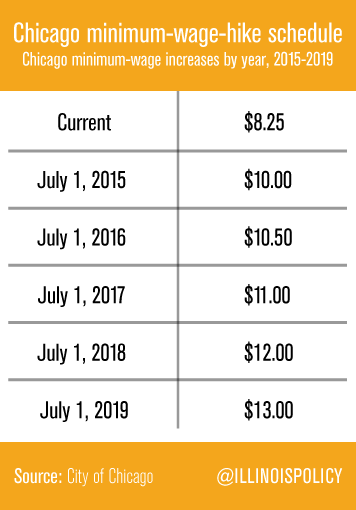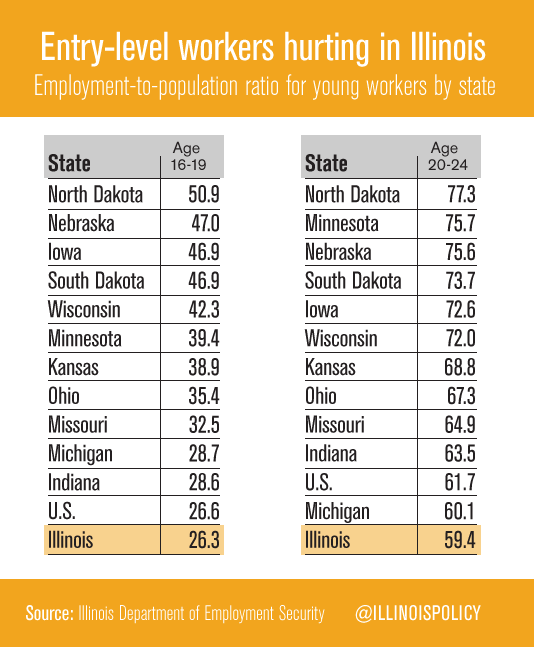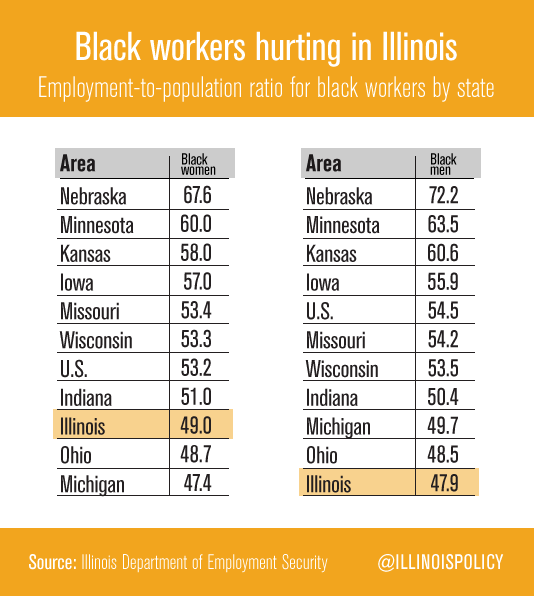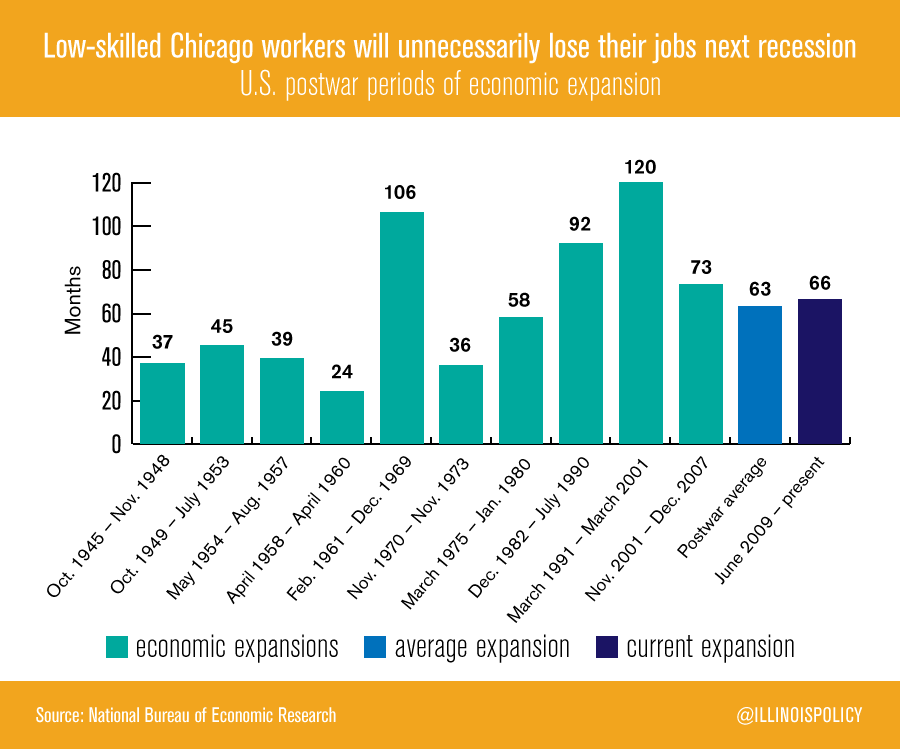Chicago minimum-wage timing could spell disaster
Chicago City Council claims that over 400,000 workers in Chicago will get pay hikes. What lawmakers should be studying is how many tens of thousands of those workers are going to be unnecessarily thrown out of work the next time the economy slows down, property taxes go up or a new technology comes along that can replace human labor.
Chicago City Council voted to raise the city’s minimum wage by 58 percent despite overwhelming evidence that raising the minimum wage knocks less skilled workers out of work. Not only that, the timing of the move could spell disaster for unskilled workers in the Windy City, given Chicago’s uncertain future and inevitable property-tax hikes.
The minimum wage will be stepped up in stages between July 2015 and 2019, going from the current $8.25 all the way up to $13.
Starting in July 2020, the minimum wage will then climb in lockstep with increases in the cost of living.
Chicago’s minimum-wage hike comes on the heels of new research from economists at the University of California, San Diego showing the 2007 national minimum-wage hike, which raised the minimum wage to $7.25 from $5.15, cost the U.S. a stunning 1.4 million jobs.
The 2007 national minimum-wage hike was a policy failure and a timing disaster. Illinois one-upped the national wage hike, raising its own minimum wage to $8.25 from $6.50 starting in 2007.
The minimum-wage rates went up right as the U.S. entered a severe recession. When businesses were squeezed by the crashing economy, legislators forced them to raise wages for lower-skilled workers.
The result was a disaster for lower-skilled workers. For the U.S.: 1.4 million American jobs were lost. For Illinois: the state has worst employment rate in the Midwest for youth workers and black men; the groups research suggests are most negatively affected by the minimum wage.
Chicago is tempting fate in the face of an uncertain future. The city has $63.2 billion in pension and debt liabilities, and in one year the bill is coming due. Chicago’s pension payments will jump by $550 million at the beginning of 2016 just to cover two of the city’s five pension systems. Property taxes on Chicago businesses would have to go up by 72 percent in one year to make the payment.
Meanwhile, the current U.S. economic expansion has run for 66 months, already going longer than the average economic expansion in the postwar era of 63 months. The next time a recession hits, Chicago’s minimum-wage hike is going to force employers to lay off low-skilled workers they would have otherwise kept.
Chicago City Council claims that over 400,000 workers in Chicago will get pay hikes. What they should be studying is how many tens of thousands of those workers are going to be unnecessarily thrown out of work the next time the economy slows down, property taxes go up or a new technology comes along that can replace human labor.
This wage hike does nothing for the graduates of Chicago’s lowest-performing schools, who are already locked out of the labor force due to lack of skills. The only thing certain about the Chicago minimum-wage hike is that those who need opportunity most are going to continue receiving it least.




